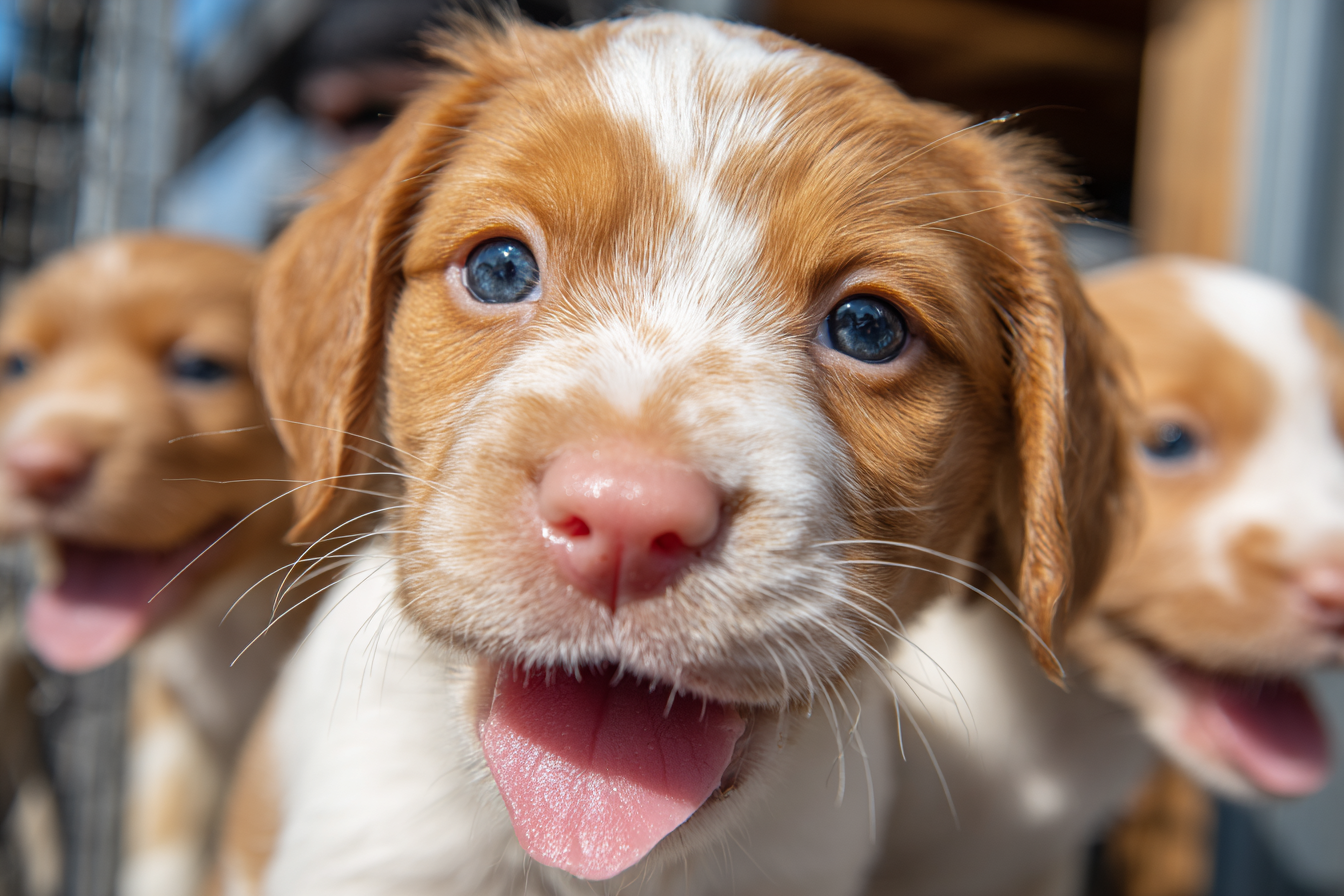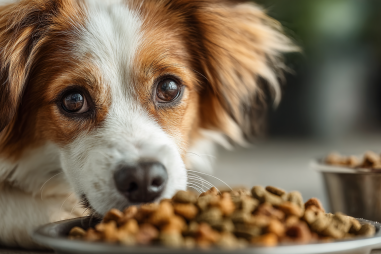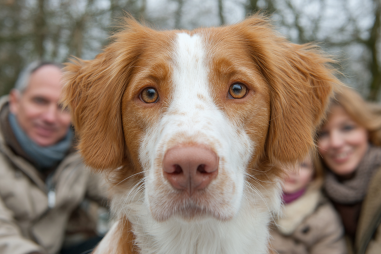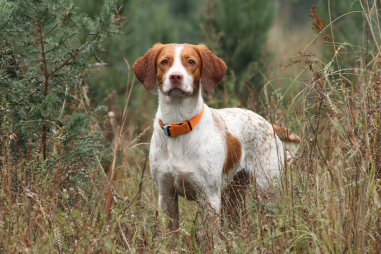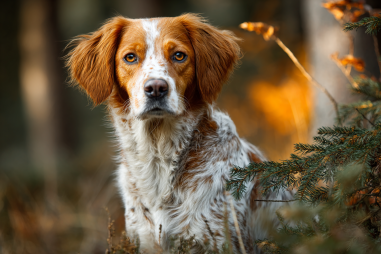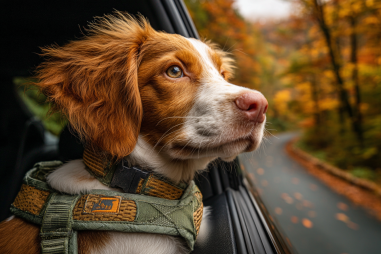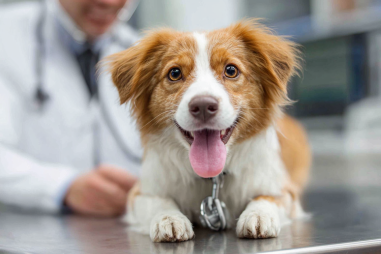Welcoming a Brittany puppy into your home is an exciting experience filled with fun and challenges. These energetic, affectionate dogs are known for their intelligence and friendly nature. To ensure your Brittany puppy grows up healthy, happy, and well-behaved, there are several essential care aspects to consider. From preparing your home to nutrition, socialization, training, health checkups, and safe play, each step plays a vital role in shaping your puppy’s development. Here’s a comprehensive guide to help you provide the best care for your new furry family member.
Preparing Your Home for a Puppy
Before bringing your Brittany puppy home, preparation is key to creating a safe and comfortable environment. Brittany puppies are curious and energetic, so puppy-proofing your living space helps prevent accidents and protects your belongings. Start by securing electrical cords, removing small objects that could be swallowed, and restricting access to hazardous areas like staircases or kitchens.
Designate a specific area for your puppy where it can feel secure and rest undisturbed. A cozy crate or a comfortable bed placed in a quiet corner works well. This space becomes a safe haven where your puppy can retreat when it needs downtime. Having a routine for feeding, resting, and playtime from the beginning reinforces consistency, making it easier for your puppy to adjust to its new home.
Feeding and Nutrition Guidelines
Proper nutrition is fundamental for your Brittany puppy’s growth and overall health. Puppies require a diet rich in protein, fats, vitamins, and minerals to support their active lifestyle and developing bodies. Choose a high-quality commercial puppy food formulated to meet the nutritional needs of medium-sized breeds like the Brittany.
Feeding routines should include:
- Regular meal times: Feed your puppy three to four times daily, gradually reducing to two meals as they approach six months of age.
- Portion control: Follow the feeding guidelines on the puppy food packaging, adjusting portions based on your puppy’s growth, activity level, and veterinarian advice.
- Fresh water: Always have clean and fresh water available to keep your puppy hydrated.
Avoid human foods that are toxic to dogs, such as chocolate, grapes, onions, and foods high in salt or sugar. If you want to add treats for training, opt for healthy, puppy-appropriate options and do so in moderation.
Early Socialization Practices
Socialization is a critical phase in your Brittany puppy’s life, influencing its behavior and temperament into adulthood. Introducing your puppy to a variety of people, animals, environments, and sounds in a positive and controlled way helps build confidence and reduces fear or aggression later on.
Begin socialization as early as 3 to 4 weeks old, continuing through the first few months. Some effective socialization tips include:
- Inviting friends and family over to interact with the puppy in a calm setting.
- Taking your puppy for short, supervised outings to different locations like parks, pet stores, or quiet streets.
- Encouraging gentle interactions with other vaccinated and friendly dogs.
- Exposing your puppy to various noises like vacuum cleaners, doorbells, and traffic sounds at a comfortable volume.
Always ensure these interactions are positive and never forced. Reward your puppy with praise or treats when it reacts well to new experiences to create a strong association with good behavior.
Basic Training Foundations
Training your Brittany puppy early on helps establish clear communication, encourages good behavior, and strengthens your bond. This breed is known for its intelligence and eagerness to please, making training sessions rewarding when done with patience and consistency.
Start with simple commands such as:
- “Sit”
- “Stay”
- “Come”
- “Down”
- “Leave it”
Use positive reinforcement techniques including treats, toys, and verbal praise. Keep training sessions short—around 5 to 10 minutes—to match your puppy’s attention span and make learning enjoyable. Establish a routine, and be consistent with commands and expectations.
In addition to basic obedience, potty training is essential. Crate training can be an effective tool, along with frequent outdoor trips and praise for going potty in the right place. Patience is crucial, as accidents are part of the process.
Health Checkups and Vaccinations
Regular veterinary care is vital to ensure your Brittany puppy stays healthy. Schedule your first vet visit soon after bringing your puppy home for a thorough physical examination and to discuss a vaccination schedule. Core vaccinations typically include protection against parvovirus, distemper, adenovirus, and rabies.
Your vet will also provide guidance on deworming, flea and tick prevention, and spaying or neutering options. Keeping up with scheduled health checkups allows early detection of any potential issues and keeps your puppy on track for growth and development.
Monitor your puppy’s behavior and physical condition daily. Signs of illness may include lethargy, vomiting, diarrhea, loss of appetite, or unusual behavior, and should prompt a veterinary consultation immediately.
Safety and Playtime
Playtime is not only essential for exercise but also for mental stimulation and bonding with your Brittany puppy. These dogs have high energy levels and love activities that engage both their body and mind. Safe toys that are durable and appropriate for puppy chewing habits are a must to prevent choking hazards or ingestion of small parts.
Create a safe play environment by supervising interactions and making sure play areas are free from dangerous objects or toxic plants. Outdoor play requires secure fencing to prevent escape as Brittany puppies have strong instincts and can be quick runners.
Introduce variety in play such as fetch, puzzle toys, or gentle tug games to keep your puppy interested and to channel its energy positively. Remember to give your puppy regular breaks and plenty of water during intense play sessions.
Raising a Brittany puppy can be an incredibly rewarding journey full of joyful moments and learning experiences. By preparing your home thoughtfully, providing nutritious meals, ensuring proper socialization and training, maintaining regular health care, and prioritizing safe play, you set the foundation for a well-rounded, healthy, and happy dog. With love and consistency, your Brittany puppy will grow into a loyal companion you can cherish for years to come.

